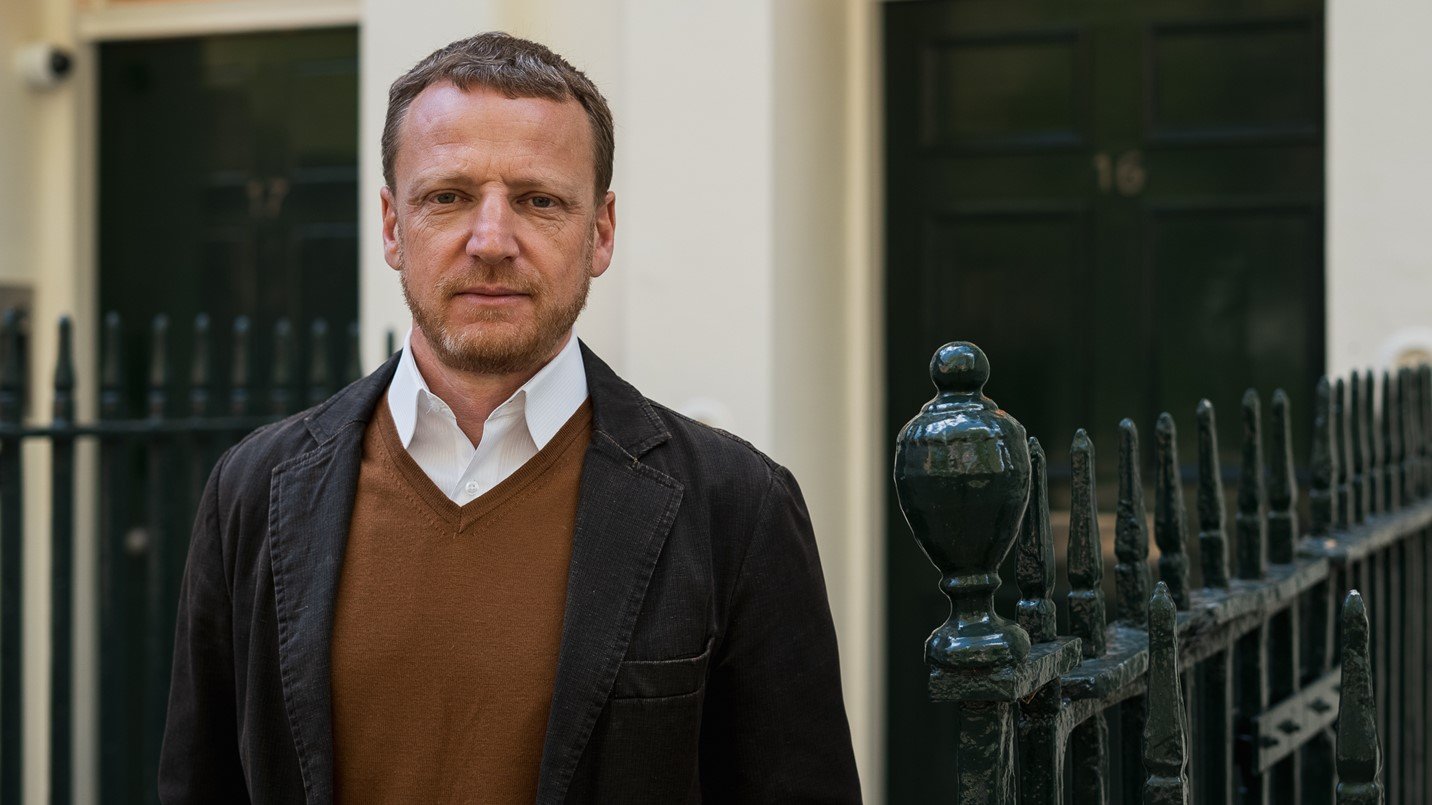When investors came knocking, he found himself wrestling between what they could bring to the table – and what a meticulous, steady approach, led 100% by himself, could achieve instead.
While bootstrapping has meant that he gets to truly "own" every success that his €20 million+ company enjoys, self-funding has come at a high personal cost.
Bootstrapping isn't for everyone.
Let's get something clear from the start. Bootstrapping is probably not the best way to grow a business.
It's tough, and it's stressful. If you have no other option, then sure. But the vast majority of bootstrapped businesses fail.
For me, bootstrapping wasn't planned – it just happened. I had several meetings with potential investors, and each time they would ask: "So what's the next step – and how much money do you need to get there?"
Because I have always thought in very practical terms, I found myself thinking, "Well, I just need a first client. And I don't need a million or 10 million euros for that."
Then, the next step was to expand our service to a different currency other than just euros – and we didn't need investment for that either. We just needed to do certain things over four or five months, and it wouldn't cost more than 100,000 euros. I had that.
We launched with around half a million Euros, some of which came from my own savings, with the rest coming from my consulting business.
If you're practical and you know your next steps, you can advance in small increments and you might not need external funding. Plus, you get to focus 100% on running your business – not managing your investors.
But going it alone comes with a cost.
As a founder-owner, you're responsible for everything.
On the plus side, I have pretty good control over how the business operates. Even though we've grown to 130 people.
But I've had to make lots of sacrifices. And I've got the scars to prove it.
I wish, for example, I'd had more time to spend with my family and with my friends. Running a business on your own is very stressful, and I think you pay dearly for that.
Someone once said that if you're an entrepreneur and your business has been funded, you will grow and learn if it fails – and it's your investor who loses. When you bootstrap, if you fail it's you who pays.

Dima Kats, CEO and founder of Clear Junction. Photo: Clear Junction.
There's a really easy way to avoid being tempted by investors.
It's this: don't go and meet VCs! For me, though, investment was never all that attractive. And I knew it would come with a price.
That price is losing some of your independence. There's probably going to be someone telling you what to do and what not to do.
If nothing else, being aware of this might help reduce some of the temptation to open your door to investors. But remember – I have nothing against funded companies. In many cases, I think investment is the right thing to pursue.
If you bootstrap, you're always thinking about risk.
You become especially obsessive about cash flow. I could see, for example, that hiring a Ukrainian IT team when first starting was going to cost around one-third of what it would cost to build a team in London, so that's what I did.
But that in itself is a risk because you never know if the money you're saving will be a good investment or turn out to be a costly mistake. It's the same when you decide to hire someone who is unproven but seems to have potential versus someone experienced but expensive.
The war with Russia hadn't yet started when my Ukrainian team was up and running, but I sensed that the situation in Ukraine wasn't going to end nicely.
It felt incredibly risky to have such a dominant function – basically our whole IT department – based in Ukraine, so I said I would open an office in Poland and relocate them and their families there if they wanted to go.
About 90% of them decided to do it, and while there was obviously a cost to that, it turned out to be a good move.
Bootstrapping means compromise. Lots of it.
When you bootstrap, every decision is your responsibility. I guess one positive of that is that you just can't give up. You have no choice. You fight for every client, and you have to make it work.
The downside is having to make compromises. When it comes to pricing, for example, the reality of business is that you can't always say no when a new client is haggling over the price.
Having to make compromises has probably been the most stressful thing for me when growing the business because even though I was getting great support and advice from my team, I was the person responsible in the end.
I had to make the right decision – or pay for the wrong decision.

“Let's get something clear from the start. Bootstrapping is probably not the best way to grow a business.". Photo: Clear Junction.
A beautifully clear vision keeps everyone on track.
Being really clear about your vision gives you some long-term perspective.
I always knew where I wanted to go, and every single decision for the company has been analysed against that vision.
I think when your team sees that you stay true to this and that you're not going back and forth from one goal to the next, it helps them stay on track, too.
Four or five years ago, we were tempted to work with clients who weren't really in our target market, and we ultimately said no so that we could concentrate on our specific niche.
This helped us to be in the right place at the right time in the FinTech space, with some really great growth in 2020/2021.
Luck – plus a little flexibility – can lead to amazing things.
Our business model has always been about providing payment services to payment service providers. In late 2018, we started being approached by companies dealing in cryptocurrencies – something we viewed as very esoteric, very risky, and very geeky. Initially, we didn't want to touch it.
But we analysed the market, took the decision that these were financial institutions, and said, "Fine. If someone believes in that, wants to buy it and it's legal, then OK. We'll support cryptocurrency."
Today, we have a really strong portfolio of crypto businesses in our client base. Some of the largest crypto businesses in the world bank with us.
That decision helped us first to break even and then become very profitable. We achieved 140.5% growth between 2019-2022 and have been ranked as one of Europe's fastest-growing companies by the Financial Times in the FT 1000: Europe’s Fastest Growing Companies 2024.
Rapid fire questions:
What's the most impactful project you've ever worked on?
It was when we onboarded Monobank, the largest neobank in Ukraine. They've been a client of ours for four or five years and I think they're now the largest neobank in Eastern Europe. The beauty of it was that we managed to support remittance flows from thousands of individuals who live in Europe who wanted to send money to their families living in Ukraine. It's cheap, it's predictable and it's very elegant from a FinTech perspective. I'm really proud of that.
What is the one piece of advice you wish you'd had before starting your business?
Don't bootstrap! It's only to be considered if you're not willing to listen to anybody and are 100% confident about what you're doing.
How do you think B2B sales will change in the coming decade?
I think it will be massively affected by AI. I hear from different people in the industry, for example, that quite a few responses to RFPs (requests for proposals) are now being generated using AI. In general, AI means we will become more like editors than creators of new content.
Which entrepreneurs did you get inspired by and why?
Jeff Bezos. He had a huge vision for a global logistics company that was really strong. It's taken him 20 years, but it's something really to learn from.
If somebody took over Clear Junction tomorrow, what do you think would be the first thing they would change?
The answer to this question two weeks ago would have been our logo and branding. But we just did that, so it's perfect. There is nothing to change here!









